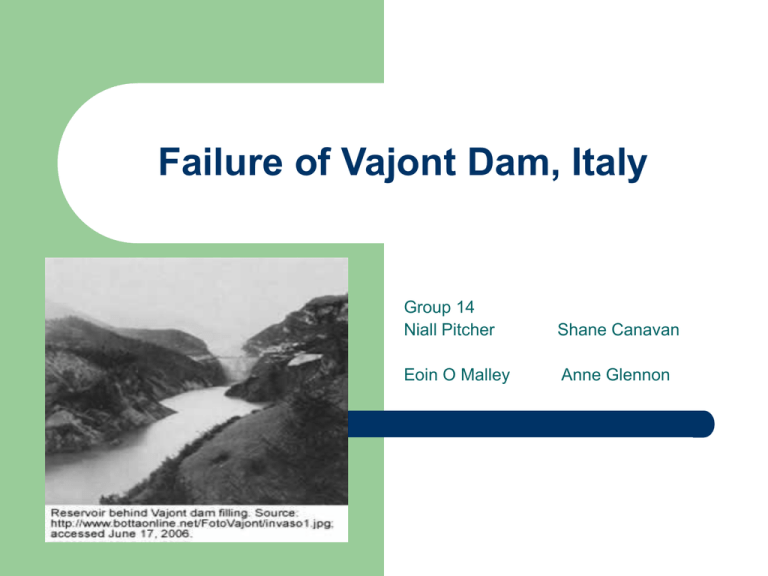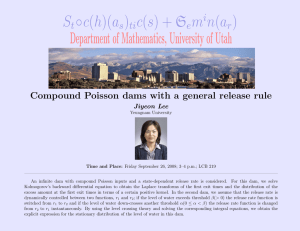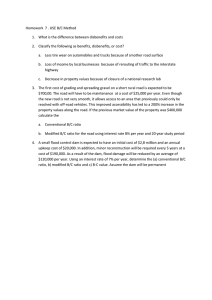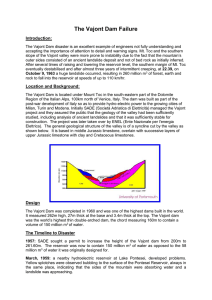Group 14-Vajont Dam PPT.ppt
advertisement

Failure of Vajont Dam, Italy Group 14 Niall Pitcher Shane Canavan Eoin O Malley Anne Glennon Location and Background Located 100kms North of Venice in the Alps. Constructed by a company called SADE to provide hydroelectric power to the cities of Milan, Turin and Modena. 1956-1960 265 metres high Area Map Design Designed as a doubly curved arched dam made from reinforced concrete (360,000m³) The dam was 3.4m thick at its crest widening out to 27m at its base, with the chord of the dam 160m Volume of impounded water was 115 million m³ within the reservoir created from the dam largest thin-arched dam in the world when it was completed in 1960 Failure Studies into the soil surrounding the dam concluded 3 test borings had failed to identify areas of weakness; It was assumed that any shear plane would have a ‘chairlike’ form and exert a ‘braking effect’; Seismic analyses had suggested that the banks consisted of very firm in-situ rock with a high Young’s modulus. Concluded that smaller slides in the looser surface layers were likely (with low velocities and volumes), deep-seated landslides were extremely unlikely. November 1960-designers realised that the large mass of the left bank was unstable used varying levels of water and drainage tunnels to gain control of the sliding mass Dam was drained down and filled up 3 times to comtrol the creep rate, without failure 4th October 1960………. On 4th October 1960, 260 million m³ of earth and rock slid 500m north at 110 km/hour Landslide pushed a wave up the opposite bank 260m above the original reservoir level and then over-topped the dam by up to 245m. 30 million m³ of water fell on five villages destroying them. 2500 people were killed Reasons for Failure An increase in pore water pressure due to the increasing level of the reservoir reducing the effective normal strength and the shear resistance. When the level was dropped hydraulic pressures were induced as water in the jointed limestone tried to drain. The force from this caused a brittle failure and a loss of strength. It is believed SADE were under pressure to sell the dam and its generators to the newly formed stateowned electric company.






